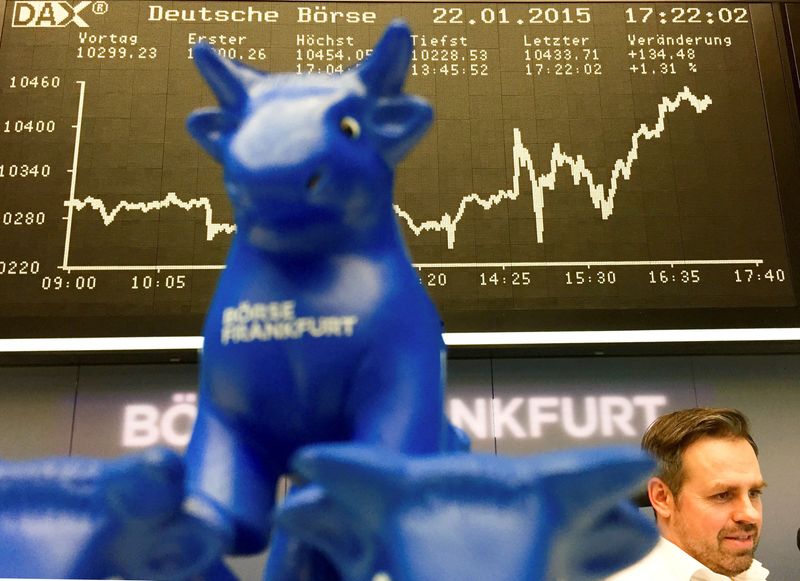This post was originally published on this site

At 02:00 ET (06:00 GMT), the DAX futures contract in Germany traded 0.1% higher, CAC 40 futures in France climbed 0.1% and the FTSE 100 futures contract in the U.K. rose 0.1%.
The month of August is coming to end, and it has been a difficult one for investors as the eurozone struggled with a sharper-than-expected contraction in business activity.
The DAX is on course for a monthly loss of 2.2%, the CAC 40 is currently down 0.6%, while the FTSE 100 is 2.5% lower.
Investors are set to focus on the release of preliminary eurozone consumer inflation data for August, as the next policy-setting meeting of the European Central Bank draws nearer.
Data from Germany and Spain on Wednesday suggested that inflation was slowing at a disappointingly sluggish pace, and if this is matched in the eurozone as a whole it may force the European Central Bank to raise rates again in September.
The eurozone CPI is expected to rise 5.1% on an annual basis in August, a slight cooling from July’s 5.3%, but Wednesday’s data pointed to potential upside.
ECB President Christine Lagarde hinted that the region’s central bank will pause its rate-hiking cycle in September at the press conference that followed its last meeting.
German retail sales slumped 0.8% on the month in July, an annual drop of 2.2%, data showed earlier Thursday, illustrating the damage the ECB’s aggressive monetary policy tightening was having on the region’s largest economy.
Across the pond, softer data from the U.S. economy this week has bolstered market expectations that the Federal Reserve will pause its rate-hiking cycle in September, at least for a month.
The core PCE number for July is due later in the day, and is expected to show a small 0.2% increase from the previous month, while estimates put annual core numbers at 4.2%, up from 4.1%.
In corporate news, UBS (SIX:UBSG) reported net profit of just under $29 billion for the second quarter, in its first earnings results since it took over Credit Suisse in a hastily arranged deal. The Swiss banking giant also said it would fully absorb Credit Suisse’s domestic bank, deciding against spinning off the business.
“Our analysis clearly shows that a full integration is the best outcome for UBS, our stakeholders and the Swiss economy,” Chief Executive Sergio Ermotti said in a statement.
Oil prices traded largely unchanged Thursday, as traders digested the conflicting influences of disappointing business activity data from China, the world’s biggest crude importer, and a substantially bigger-than-expected draw in U.S. crude inventories.
The Energy Information Administration reported Wednesday that U.S. oil inventories shrank by 10.6 million barrels last week, substantially above the 3.3 million barrels expected, as refiners ramped up production before the Labor Day weekend, which usually signals peak U.S. summer demand.
Markets were also watching for any more disruptions in production stemming from Idalia, which made landfall in Florida on Wednesday, and has since been downgraded from hurricane status back to a tropical storm.
By 02:00 ET, the U.S. crude futures traded 0.1% higher at $81.72 a barrel, while the Brent contract climbed 0.1% to $85.30. Both contracts were set to break a two-week losing streak, but were also set for minor gains in August.
Additionally, gold futures fell 0.1% to $1,971.70/oz, while EUR/USD traded 0.1% lower at 1.0915.

